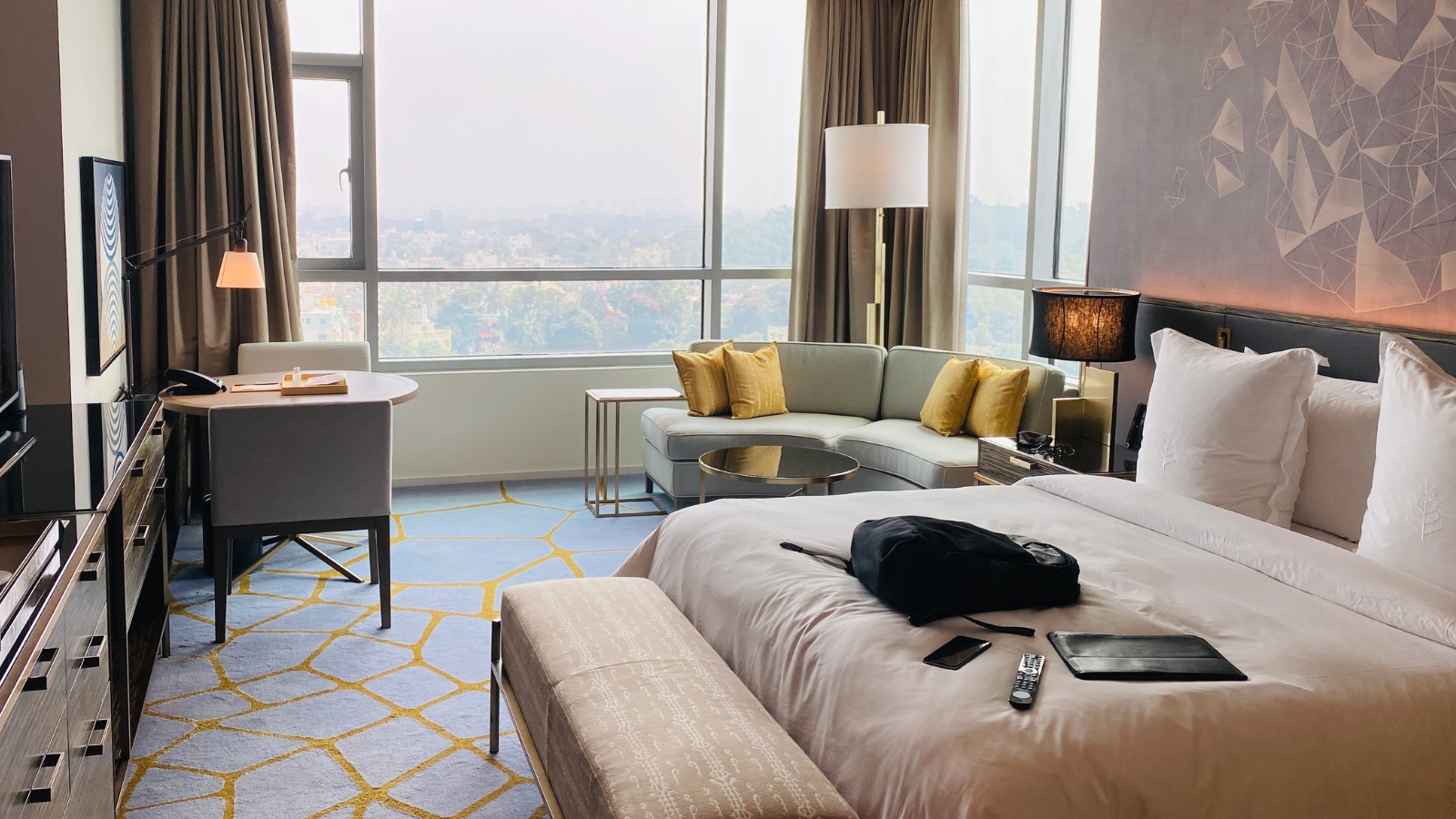
In a highly competitive industry, revenue management systems (RMS) for hotels have become essential for properties to compete effectively in real-time, utilising automation and data-driven insights to maximise revenue and profitability to help ensure long-term success.
The alternative is a laborious, manual system prone to human error, so it’s of little surprise that an increasing number of properties, of all sizes, are investing in an RMS as a cost-effective and efficient way to maximise revenues. Demand is dynamic (even for small hotels) and even though the capabilities, complexity and cost of RMS’s varies greatly, almost every hotel can benefit from an RMS.
In this article, I state what an RMS is, its benefits, why you still need a Revenue Manager, how to find the best RMS for your hotel, if it’s easy to change and implement an RMS, and common RMS mistakes you should endeavour to avoid!
What Is A Revenue Management System In A Hotel?
A revenue management system (RMS) is a software application that analyses past, present and future data to create forecasts that it uses to help optimise a hotels pricing, inventory and distribution related strategies to maximise revenues and profits.
Imagine you are walking a tightrope over a fast-flowing river. Each of your steps must be calculated and precise to avoid a cold plunge! Hotels face a similar challenge – they have a fixed amount of inventory that perishes each day and demand fluctuates in accordance with various factors, such as competitor prices, local events and seasonality.
Calculating optimised prices at the right time is crucial to maximising revenues and using an RMS can greatly assist you in this process!
3 Benefits Of Hotel Revenue Management Systems
Whilst there are several benefits to using a revenue management system (RMS) for hotels, there are three that are key:
- 1. Data-Driven Insights
An RMS will analyse past, present and future data to predict future demand, produce accurate forecasts and provide a comprehensive dashboard of data and reports in real-time, that enables you to benchmark your performance against your competitors, market and trends.
- 2. Enhanced Efficiency
Utilising automated processes, an RMS can minimise the risk of human error, reduce manual tasks and streamline workflows, enabling faster decision-making, generating cost savings and improving performance and team morale.
- 3. Maximise Revenues & Profitability
Using accurate demand forecasts to optimise distribution, inventory and pricing, based on competitor and real-time data and subsequently adjusting prices dynamically, an RMS can automatically increase occupancy, maximise Average Daily Rate (ADR) and Revenue Per Available Room (RevPAR), leading to improved profitability.
Other benefits can include acquiring competitive advantage, enabling a guest-centric approach and supporting long-term strategic planning. However, the specific benefits of any RMS will depend on a hotel’s location, revenue strategy, size and target segments.
If I Have A Revenue Management System (RMS), Do I Need A Revenue Manager?
This is a common question – first, let’s consider the roles of each:
A Revenue Manager is a specialised professional with expertise in data analysis, market dynamics and price optimisation and is responsible for creating and implementing a revenue strategy that will enable your hotel to realise its true revenue potential.
A Revenue Management System (RMS) and a Revenue Manager together, can, therefore, form a powerful partnership that serves their common goal to maximise revenues, yet they serve distinct roles in that process.
Below are examples of how a Revenue Manager works with an RMS:
- Data Collection & Analysis – The RMS is a comprehensive data hub, automatically collecting data from various sources, such as Rate Shopping and Reputation Management tools, whilst the Revenue Manager sets the parameters for data collection and focuses on relevant metrics such as occupancy and revenues.
- Distribution & Inventory Control – The RMS tracks availability and may suggest inventory controls such as a minimum length of stay or rate closures based on demand predictions, whilst the Revenue Manager will make decisions regarding inventory allocation and optimise distribution channels to maximise reach and revenues.
- Forecasting & Pricing – The RMS will analyse data and use sophisticated algorithms to forecast demand and recommend optimal prices, whilst the Revenue Manager will interpret the forecasts and consider competitor prices, guest segmentation, market dynamics and RMS recommendations, before proactively adjusting prices.
- Monitoring & Reporting – The RMS provides useful dashboards and reports with Key Performance Indicators (KPI’s) like ADR and RevPAR, whilst the Revenue Manager will analyse the reports, identify areas for improvement, make strategic performance-based adjustments and track the effectiveness of distribution, inventory and pricing related decisions.
A revenue management system (RMS) for hotels is the technology that underpins revenue management, whilst the revenue manager provides human expertise that interprets and utilises the information to make informed, strategic decisions and translates them into actionable strategies that can be adjusted in real-time. To get the best results for your hotel, provide your Revenue Manager with an RMS and vice versa.
How To Find The Best Hotel Revenue Management System (RMS) For Your Hotel
With a wide range of Revenue Management Systems (RMS) available, it’s essential to spend time evaluating your options, based on the requirements of your hotel, to help ensure you reap the benefits. Follow the five key steps below to find the best RMS for your hotel:
- 1. Assess Requirements – Determine your requirements of an RMS based upon your budget, cost, goals, size, turnover and type of hotel. For example, if you own/run a small hotel, you may find a cloud-based RMS to be most suitable, but if you own/run a medium-large sized hotel or hotel group, you may require a more robust on-property solution.
- 2. Research Options – Gather information from industry events, publications, online reviews, vendor websites and webinars so you can compare features and pricing before compiling a suitable shortlist. Ensure adequate customer support and training are available too!
- 3. Compare & Evaluate Features – Focus on functionality crucial for your hotel, consider ease of use for staff and if they have integrations with your existing hotel systems and/or systems you plan to use in future, which is crucial for optimising workflows and seamless data flow.
- 4. Contact Vendors & Request Demos -Reach out to prospective vendors and schedule online demonstrations to gain first-hand experience and insights in to features and the user interface.
- 5. Make An Informed Decision – Consider all factors and choose the RMS that most aligns with your long-term goals and needs.
Tip! Consider contacting a Hotel Revenue Management Consultant to get a recommendation on which RMS they use to get great results for their clients!
Is It Easy To Implement Or Change A Hotel Revenue Management System (RMS)?
Implementing or changing Hotel Revenue Management Systems (RMS’s) can be challenging and feel a little daunting, irrespective of whether you’re implementing an RMS for first time or transferring to a new RMS. Follow the best practices below to minimise disruption and risk:
Plan & Prepare:
Create an implementation plan, outlining resources, responsibilities, tasks, timelines and contingency plans for potential issues. Communicate effectively to your staff about the upcoming changes, expected benefits and objectives to foster understanding and obtain their buy-in. Create a disaster recovery plan too, to ensure business continuity in case of system failure or outages.
Implementation/Change:
Conduct rigorous testing in a test environment to identify and resolve any issues prior to go-live. Consider a gradual implementation to minimise disruption and ensure comprehensive training is provided to your staff who will interact with the RMS, to ensure their confidence and proficiency in use. Ensure accurate and comprehensive transfer of historical data to the new RMS to maintain data integrity and verify integrations with other hotels systems to avoid data silos and operational issues. Implement robust data security measures to protect your financial and guest information too!
Monitoring & Troubleshooting:
Continuously track system performance to ensure prompt identification of any issues and implement corrective action. Establish internal expertise for problem resolution and utilise vendor support resources. Collect feedback from your staff about system functionality and user experience to identify opportunities for improvement and keep abreast of industry trends and technological advancements in RMS to ensure you continue to leverage the latest features and functionality.
Common Revenue Management System (RMS) Mistakes To Avoid
Revenue management systems (RMS) for hotels can be powerful tools, but their effectiveness can be undermined by common mistakes, such as those below:
Data & Analysis
Ignoring historical data, using inaccurate data and/or relying solely upon current demand data can lead to inaccurate forecasts and sub-optimal pricing. Inadequate analysis of data provided by the RMS can also see insights that may improve distribution, inventory and pricing strategies, overlooked. Ignoring different guest segments, with contrasting booking patterns, loyalty status and price sensitivity, can also lead to missed opportunities to maximise revenues.
Implementation & Operation
Lack of buy-in from departments and/or inadequate training can lead to inconsistent implementation, use and sub-optimal results. Whilst the RMS provides insights, it is not a complete solution – revenue managers are required to understand the underlying data and market dynamics to interpret system recommendations and make informed decisions. Failing to leverage integrations with other hotel systems can limit the RMS’s effectiveness too.
Pricing Strategy
Using fixed prices, ignoring competitor pricing, the ever-changing nature of demand and market conditions can all lead to revenue leakage, whilst an over-reliance on dynamic pricing can result in overbooking and underselling. Pricing too high can also deter prospective guests and leave rooms empty, whilst overuse of heavy discounting can devalue your brand and erode profitability.
By avoiding these common mistakes and implementing effective revenue management practices, hotels can unlock the benefits of their revenue management system to help them achieve their true revenue potential.
Do You Need To Upgrade Your Hotel Revenue Management System (RMS)?
At MavREV, we specialise in providing outsourced revenue management expertise remotely at a fraction of the cost associated with employing a full-time revenue manager. We maximise RevPAR using MavPERFORM RMS, an algorithm-powered, cloud-based and responsively designed RMS and Price Optimiser that saves valuable costs and time!
Interested? Get in touch to book your free 1-2-1 consultation now!



